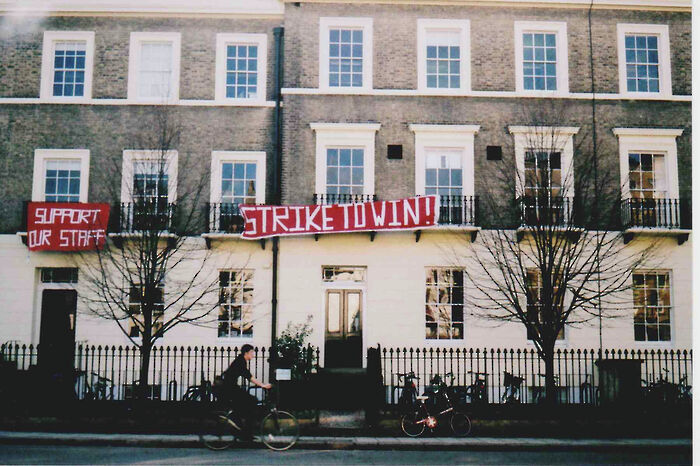My profession is one worth protecting
Dr Philip Knox explains why he feels a moral duty to go on strike

By one measure, pay for university employees has fallen by nearly 20% in the past decade. This means that, in real terms, I’m earning four-fifths of what someone doing the same job at the same level would have earned in 2009. I do feel a sense of injustice in that, but then again when I look around at my contemporaries I feel much more fortunate than them – at least I have a secure job.
I see many gifted colleagues trapped in a dismaying cycle of casual work or short-term teaching or research contracts, as their promise is wasted by the grinding experience of insecurity and low pay. What is happening to higher education in the UK? I have not been a lecturer for very long, but in my short career I have seen my own pay tank in real terms, I have seen student fees trebled, and I have seen vice-chancellors’ salaries hit City-banker levels across the country. It is not difficult to see that these things are related to each other; and it seems clear to me this is what happens when you try to run a university like a corporation, as successive governments in this country have been encouraging us to do.
We put up with unreasonable workloads until we make ourselves sick
We are all suffering the consequences of this. Workload has increased as onerous government schemes have been introduced in order to produce new rankings and drive competition. It is not unusual for me to stay up until after midnight preparing teaching or marking essays before waking up to get to my emails before 6am and make a dent in the admin before lectures start.
It’s knackering, but because we care about the job and our students, we put up with unreasonable workloads until we make ourselves sick. It is extremely upsetting to have conversations in corridors and offices with admired and respected colleagues who I can see are at the limits of what they can handle. Lecturers bursting into tears behind closed doors is not unheard of – I’ve certainly had days when I felt like it. And I’ve seen students suffering, too, as they become increasingly anxious about life after university when they are saddled with spiralling student debt that is being sold off to private companies.
We now have two cohorts of undergraduate students who were born in the 2000s, and they are not so much worried about whether they will manage to pay off their debt in their lifetime (most of them won’t), they are worried about whether they will have a planet to live on when they hit their fifties. Meanwhile, the people in their fifties and sixties (and seventies) running the university and colleges drag their feet over divesting their massive endowments from fossil fuel companies. Something is going seriously wrong here.
There is enough to make you angry, and I do get angry, but mostly I feel sad. I feel sad because in many ways I think that my job is wonderful, and the idea that it might be hollowed out over the coming years is extremely depressing. I feel deeply privileged to work with and learn from the students here. It is a job worth protecting, and worth striking over. If we start with pensions and pay, we can begin readjust the balance of universities’ priorities – last year’s strike action, and the solidarity between lecturers and students, gave a sense of what might be achieved.
 News / Downing investigates ‘mysterious’ underground burial vault 29 December 2025
News / Downing investigates ‘mysterious’ underground burial vault 29 December 2025 News / Unions protest handling of redundancies at Epidemiology Unit30 December 2025
News / Unions protest handling of redundancies at Epidemiology Unit30 December 2025 Lifestyle / Ask Auntie Alice29 December 2025
Lifestyle / Ask Auntie Alice29 December 2025 Features / ‘Treated like we’re incompetent’: ents officers on college micromanagement30 December 2025
Features / ‘Treated like we’re incompetent’: ents officers on college micromanagement30 December 2025 Science / Astronomical events to look out for over the break29 December 2025
Science / Astronomical events to look out for over the break29 December 2025










